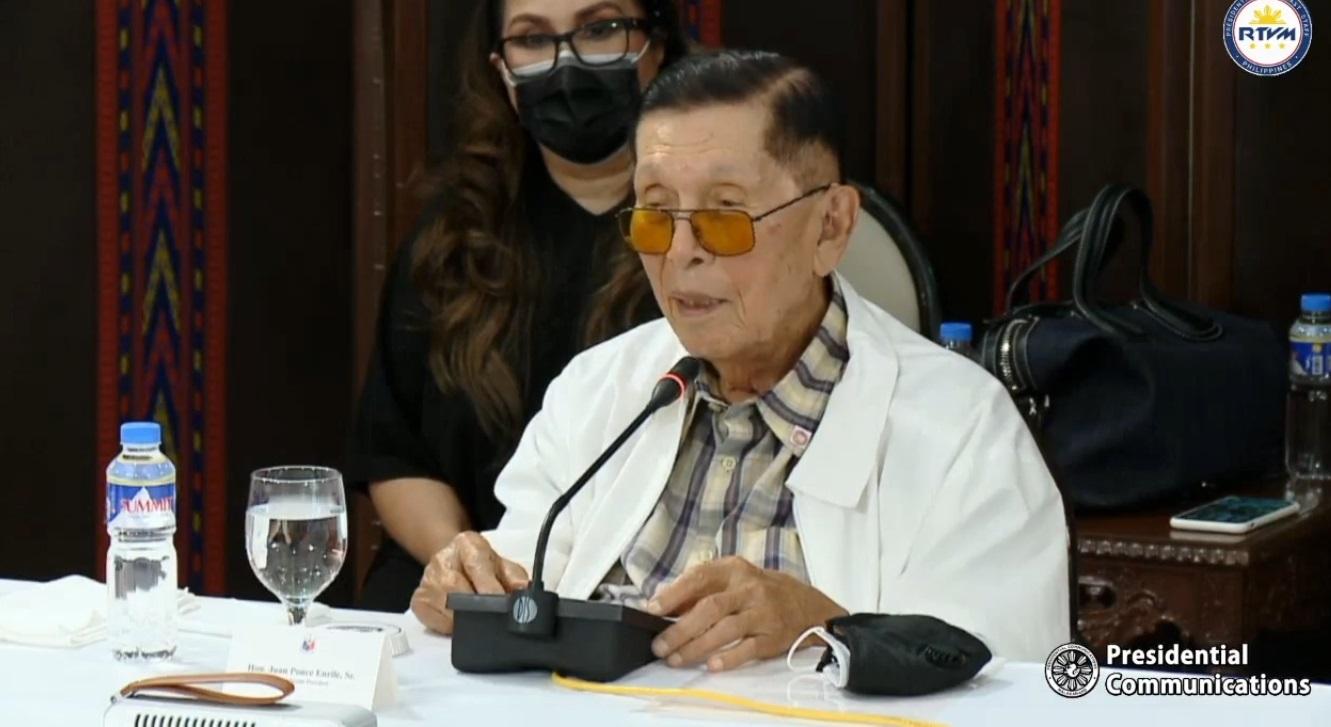SC allows Sandiganbayan to proceed with Enrile plunder case

The Supreme Court (SC) has allowed the Sandiganbayan to proceed with its trial on the P172-million plunder case against former Senate President now Chief Presidential Legal Counsel Juan Ponce Enrile, saying that the prosecution should be allowed to present evidence at its discretion.
In a 32-page decision, the Supreme Court En Banc dismissed the petition filed by Enrile asking the High Court to enjoin the Sandiganbayan from acting on his case and to dismiss it.
“The prosecution must be allowed to present evidence based on its own discretion and in accordance with the law and the rules. It has the right to determine what evidence should be presented, when, and for what purposes. Its discretion is limited only by the requirement that the evidence must be admissible,” the Court said.
In his petition, Enrile argued that the Sandiganbayan violated his constitutional right by refusing to limit the prosecution’s evidence to matters stated in the Bill of Particulars and to include the Bill of Particulars in the Pre-Trial Order.
Section 9 of the Rules of Criminal Procedures states that an “accused may… move for a bill or particulars to enable him to properly plead and prepare for trial. The motion shall specify the alleged defects of the complaint or information and the details desired.”
However, the High Court found that the Sandiganbayan did not act with grave abuse of discretion amounting to lack or excess of jurisdiction.
“[T]he Sandiganbayan correctly ruled that there is no basis nor necessity to include the Bill of Particulars Decision in the Pre-Trial Order and to limit the prosecution’s evidence to the matters stated in the Bill of Particulars. Contrary to Enrile’s claim, the Sandiganbayan acted in accordance with law and jurisprudence,” it said.
The SC said that there is no need to include the Bill of Particulars Decision in the Pre-Trial Order.
According to the High Court, the general function of the bill of particulars is to “guard against surprise during trial.” It said the bill is not meant to furnish the accused with the evidence of the prosecution.
“Clearly, to limit the prosecution to the presentation only of evidence mentioned in the information and the bill of particulars would be to shackle and tie its hands and deprive it of the free exercise of its discretion to determine who and what to present,” the SC said.
“It is settled that the matter of presentation of evidence by the prosecution is not for the courts to decide. The prosecution possesses the discretion to determine how to present its case and it has the right to choose whom it wishes to present as witnesses,” it added. — RSJ, GMA Integrated News




